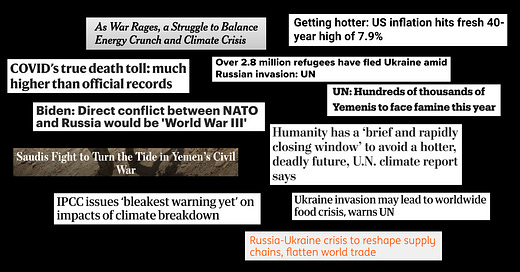A Crumbling Old World
"Every year that we head closer to catastrophe the old narrative loses its hold on the collective consciousness"
What’s been the leading trend in the 2020s so far? World crisis!
Wherever one looks there is a crisis. It’s as if the world is on fire and it’s spreading faster and faster….
This brings forth a big concern: Crisis paralysis, which describes how information and crisis overload causes people to freeze, give up or cocoon (check out this TikTok).





